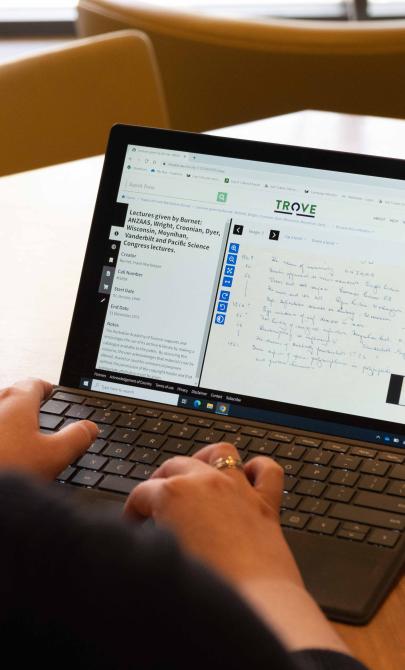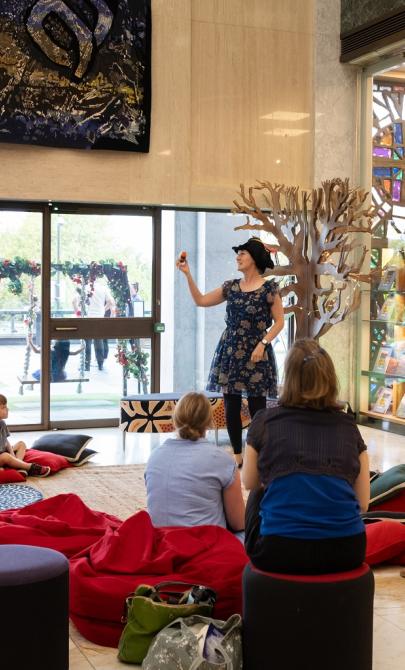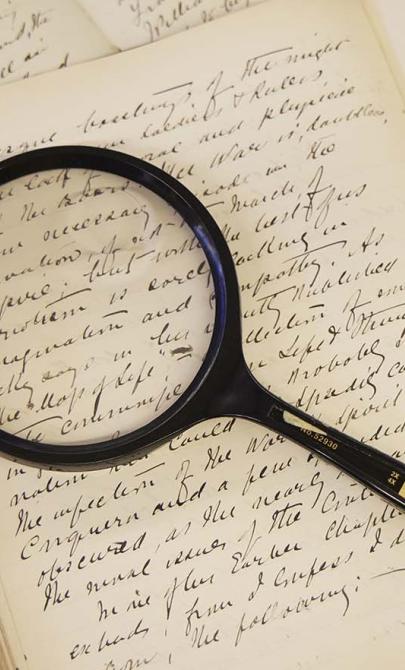First Nations perspectives on Cook
Community perceptions of British arrivals
Professor John Maynard, a Worimi man, is a prominent historian whose research has focussed on First Nations history. In this lecture at the National Library, he explores how Cook and the British arrival are perceived by various communities across Australia.
Professor John Maynard - Cook's legacy across Australia; Echoes of Cook
Activity 1: How was Cook perceived by different First Nations peoples?
During his voyages, Cook visited many different places within the Pacific. Research Cook’s voyages and the ways his legacy was, and is, perceived by different indigenous peoples.
Personal impact of Cook's legacy
For many decades, the Guugu Yimithirr people from Far North Queensland have marked Cook’s voyage with an annual re-enactment. In this event they remember the time Cook spent with their people at the Endeavour River to repair damage to his ship’s hull.
Speaking at the Library, Guugu Yimithirr traditional owner and historian Alberta Hornsby describes the legacy of Cook’s visit on her own life.
Alberta Hornsby - First Nations Voices Panel; Echoes of Cook
Activity 2: Understand your communities perspectives
- As with the First Nations perspectives presented, many Australians hold differing views regarding Cook’s legacy.
- Conduct a simple survey or vox pop to explore some differing perspectives about Cook in your community.
Influence on language and vocabulary
Another legacy of Cook’s voyage for the Guugu Yimithirr people relates to their language.
Joseph Banks, who was a naturalist on Cook’s voyage, recorded some of the vocabulary used by the group. You can view Banks' list via the State Library of New South Wales. Go to Joseph Bank's Aboriginal word list now.
On seeing this document in Banks’ Endeavour journal, Hornsby said, ‘even today, a lot of the words are still recognisable’.
She also noted the role that the Christian mission at Endeavour River played in language preservation.
Not everyone responded to the mission and not everyone came in, but it did become a place where it was a haven and a refuge and the missionaries used - they learnt the language and they used the language to Christianise. And if it wasn’t for the fact that they did Christianise in the local language our language would not have survived.
Activity 3: Who do artefacts and recordings belong to?
Explorers, colonisers and missionaries collected artefacts in many regions of Australia and recorded some of the languages, including that of the Guugu Yimithirr people.
- Who do these artefacts and recordings now belong to?
- How do you weigh up the costs and benefits of cultural preservation and cultural dislocation?
- How does this relate to current debates about artefacts in museum collections worldwide?
Consequences of Cook
Victor Channel, a Murramarang man from the south coast of New South Wales, shared another perspective about Cook’s legacy with the audience at Library.
Victor Channel - First Nations Voices Panel; Echoes of Cook
Activity 4: Judging Cook’s legacy
The views expressed within this theme all relate to Cook and his legacy.
- Do you think these perspectives are fair to Cook?
- How do you think his legacy should be measured and judged?



